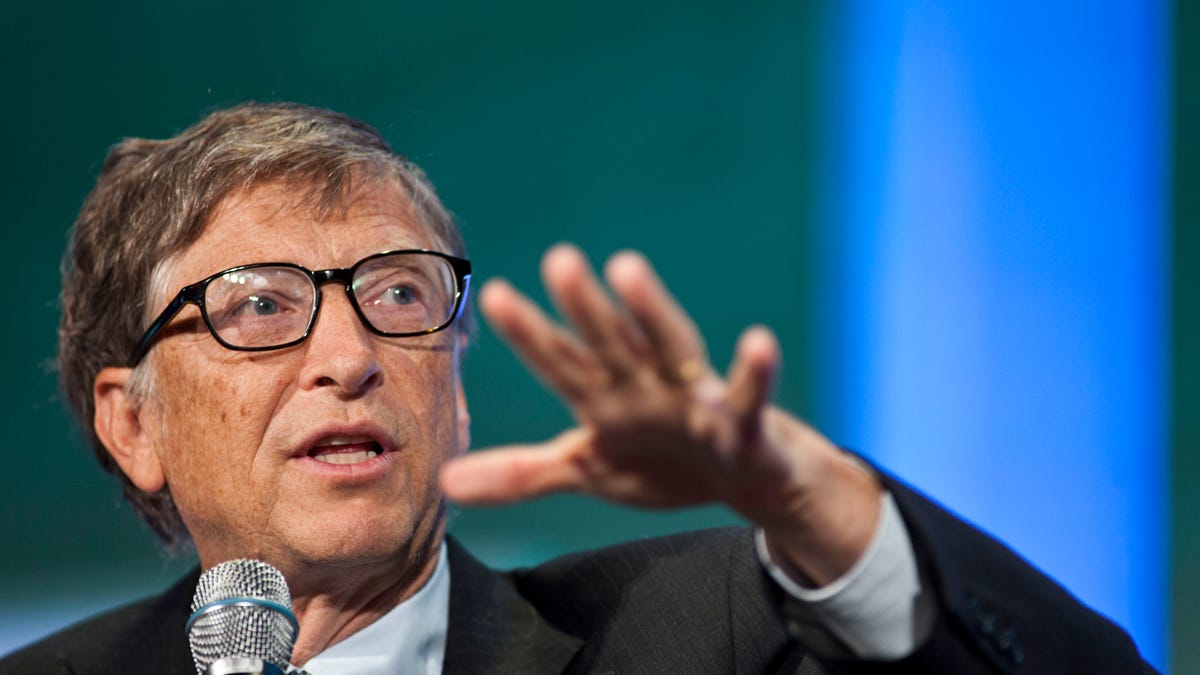Gates: IBM missed PC's early potential
Microsoft co-founder recounts how IBM drastically underestimated the potential of nascent PC business -- which impacted early negotiations over terms for the DOS operating system.

Turns out Microsoft knew that it had a sucker in its negotiations with IBM right from the start.
Asked whether he thought IBM made a mistake by not buying operating software from Microsoft as opposed to licensing it, Rubenstein asked.
"Yeah they certainly made a mistake," he said, triggering a moment of audience laughter. "But IBM is a great company that's done many, many great things. The actual project that did the IBM PC was started by the IBM management committee more to prove that they could do products quickly. They were seeing 4 year cycles bet when they decided to do something and something shipped."
Gates's famously sharp business acumen served him well in what was a fluid situation -- this would be IBM's initial attempt to try its hand in the nascent personal computer market and he understood that Big Blue's goal was to deliver something out "really quickly" as it tested the prospects of a market it underestimated.
"The volume projections they had for it were 200 to 300 thousand units over three years so they didn't view it as important. Ironically, then, that thing was hyper-successful," Gates noted. "The fact that they didn't know it as going to be such high volume meant that the way they negotiated with us -- we thought it was going to be super-high volume and they didn't. And that led to them thinking they got a good deal which they didn't."
We know how the rest of that story turned out.

